Research
[2022] University-wide cross-disciplinary project research "Hyogo Innovative Challenge" project
Research themes for 2022
| Theme | Lead researcher (affiliation, name) | |
| Construction of T cell epitope medicine | Department of Microbiology | Professor Satoshi Ishido |
| Research into the treatment of cerebrovascular diseases based on neural and vascular regeneration through optimization of transplanted cells | Department of Neurosurgery | Professor Shinichi Yoshimura |
| Elucidating the mechanisms of disease onset and exacerbation caused by environmental factors and developing preventive and therapeutic methods | Department of Pharmacology | Professor Shiho Kitaoka |
Research theme: "Establishment of T cell epitope medicine"
- Professor Satoshi Ishido, Department of Microbiology
T cells are the core of immune responses and play an important role in maintaining our health. T cell responses are antigen-specific and precisely regulated, but dysregulation can lead to the onset of disease. We aim to identify antigens and epitopes recognized by T cells by analyzing T cells thought to be involved in disease prevention or onset, and to apply this information to the control of artificial T cells and monitoring of cellular immunity.
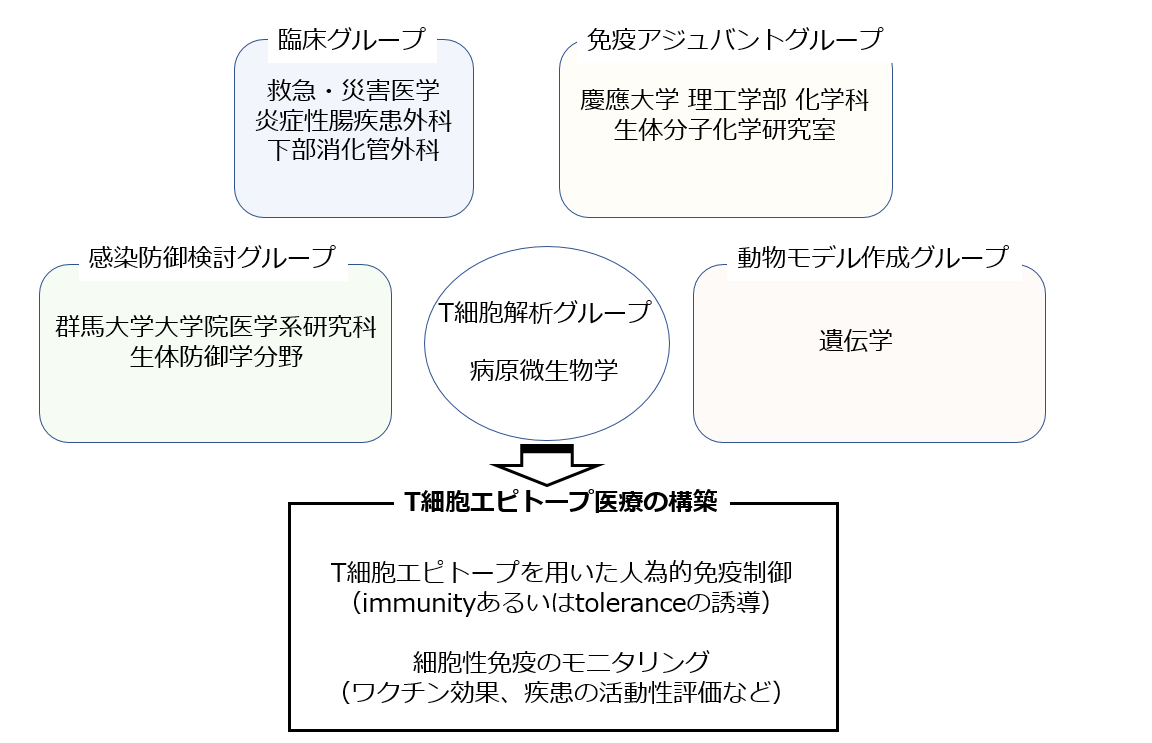
<Research Results>
Published papers in academic journals and magazines
- Dysfunctional Sars-CoV-2-M protein-specific cytotoxic T lymphocytes in patients recovering from severe COVID-19. Ogura H, Gohda J, Lu JI, Ishido S.Nat Commun.2022 Dec 16;13(1):7063.doi:10.1038/s414767-022-34655-1.
Oral and poster presentations at academic conferences and symposiums
- In-depth analysis of SARS-CoV-2-specific CD8+ T cells of moderate/severe COVID-19 convalescents using single cell RNA-sequencing analysis,
Hideki Ogura, Jin Gohda, Xiuyuan Lu, Mizuki Yamamoto,Hiromoto Murakami, Kunihiro Shirai, Sho Yamasaki, Jun-Ichi Hirata and Satoshi Ishidio The 51st Annual Meeting of the Japanese Department of Immunology, Kumamoto, December 9, 2022
Research theme: "Treatment research for cerebrovascular disease based on neural and vascular regeneration through optimization of transplanted cells"
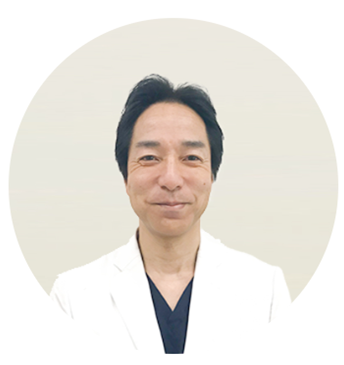
Professor Shinichi Yoshimura Department of Neurosurgery
As a new treatment for cerebrovascular diseases, the clinical application of neurovascular regeneration therapy by cell transplantation is expected. We have previously discovered that injury-induced multipotent stem cells (iSC) are specifically induced during cerebral infarction pathology (Laboratory of Neural Repair and Regeneration), and that by culturing umbilical cord blood with specific feeder cells, they become umbilical cord blood-derived angiogenesis-inducing cells (AiC) that strongly induce vascular regeneration (Laboratory of Molecular and Cellular Therapy), and have reported the therapeutic effects of both by transplantation into cerebral infarction model mice.
Based on these results, in this study we aim to establish an original novel neuro-vascular regeneration therapy for cerebrovascular diseases originating from Hyogo Medical University, based on neuro-vascular regeneration through optimization of transplanted cells.
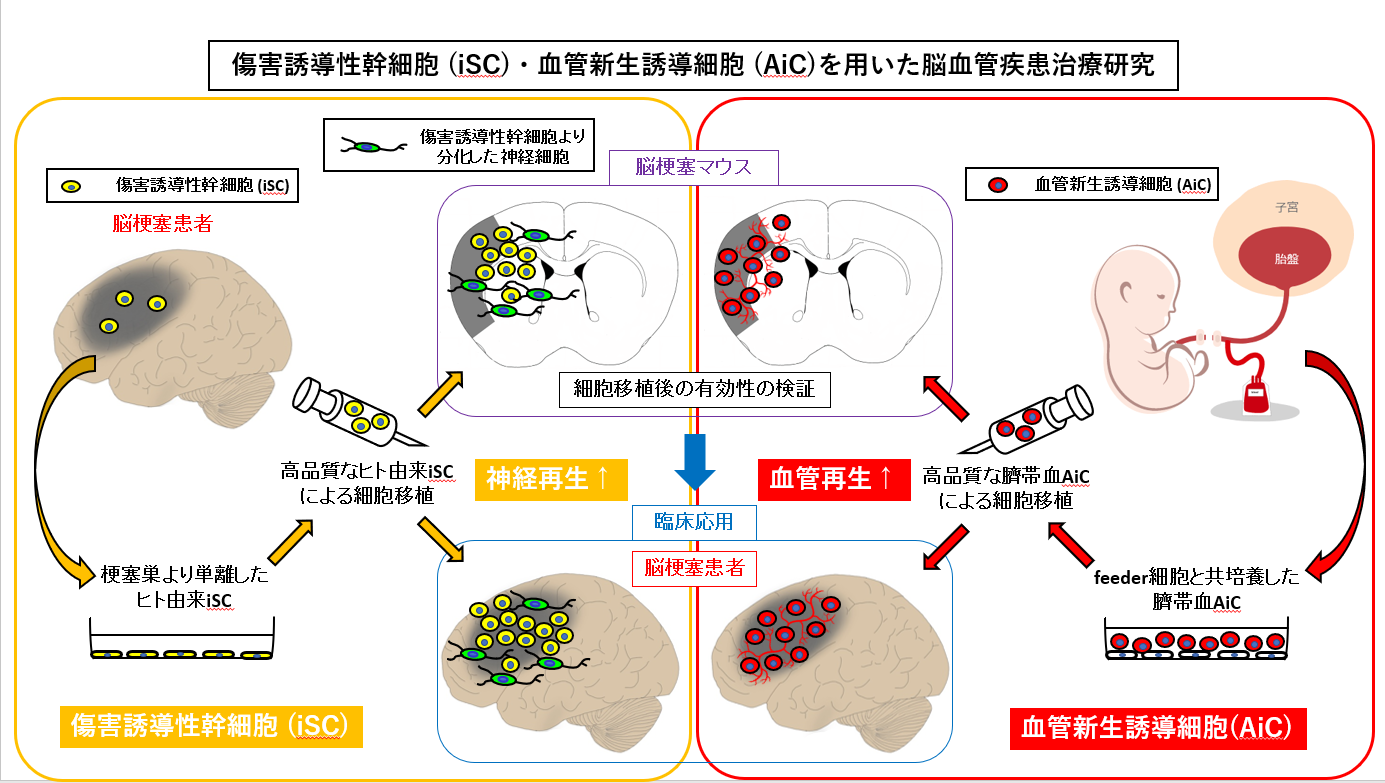
<Research Results>
Published papers in academic journals and magazines
- Yasunori Yoshida, Yuki Takeda, Kenichi Yamahara, Hanae Yamamoto, Toshinori Takagi, Yoji Kuramoto,Akiko Nakano-Doi, Takayuki Nakagomi, Toshihiro Soma, Tomohiro Matsuyama, Nobutaka Doe, Shinichi Yoshimura. Enhanced angiogenic properties of umbilical cord blood primed by OP9 stromal cells ameliorates neurological deficits in cerebral infarction mouse model.Sci Rep.2023 Jan 6;13(1):262.
- Takayuki Nakagomi, Akiko Nakano-Doi, Shuji Kubo, Toshinori Sawano, Yoji Kuramoto, Kenichi Yamahara, Tomohiro Matsuyama, Toshinori Takagi, Nobutaka Do, Shinichi Yoshimura. Administration of human brain-derived ischemia-induced multipotent stem cells ameliorates neurological dysfunction in mice after stroke.Stem CellsTranslational Medicine,12,400-414, 2023.
Oral and poster presentations at academic conferences and symposiums
- "Changes in angiogenic properties of umbilical cord blood by co-culture with OP9 and investigation of therapeutic effects of transplantation into a cerebral infarction model"
Kenichi Yamahara Oral Presentation 22nd Annual General Meeting of the Japanese Society for Regenerative Medicine March 23, 2023 - "Establishment of blood cell lineages that induce angiogenesis using feeder cells OP9"
Kenichi Yamahara Oral Presentation 22nd Annual General Meeting of the Japanese Society for Regenerative Medicine March 23, 2023 - "Efficient induction of M2 macrophages and Angiogenesis-inducing cells (AiC) using feeder cells OP9"
Kenichi Yamahara Poster 23rd Annual Meeting of the Japanese Society for Regenerative Medicine March 22, 2024 - "Cell Therapy Update - Current status and prospects of new cell therapy development using brain injury/ischemia-induced stem cells"
Takayuki Nakagomi, Akiko Doi, Shinichi Yoshimura. (Symposium) The 66th Annual Meeting of the Japanese Society of Cerebral Circulation and Metabolism, Fukuoka, Fukuoka, November 10, 2023
Research theme: "Elucidating the mechanisms of disease onset and exacerbation caused by environmental factors and developing preventive and therapeutic methods"
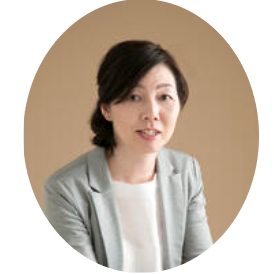
Department of Pharmacology Shiho Kitaoka Professor
With advances in medicine, our lifespans have increased. As a result, we are exposed to various stresses in our modern society. More recently, the coronavirus pandemic has caused an increase in the number of people feeling stressed.
Moderate stress activates the biological system and allows our bodies to cope with stress. On the other hand, when we experience extremely strong stress, such as from a disaster or accident, or are exposed to stress for a long period of time, our bodies are unable to cope with the stress, making us more susceptible to illness or worsening symptoms. Thus, there is "good stress" and "bad stress." Our group aims to clarify how "bad stress" causes or aggravates illness.
We have also found that bad stress induces emotional changes through brain inflammation originating in microglia. It is not known how bad stress induces brain inflammation, so we aim to investigate and clarify in detail the effects that bad stress has on the whole body.
Ultimately, we hope to develop methods to identify and prevent diseases caused by "bad stress."
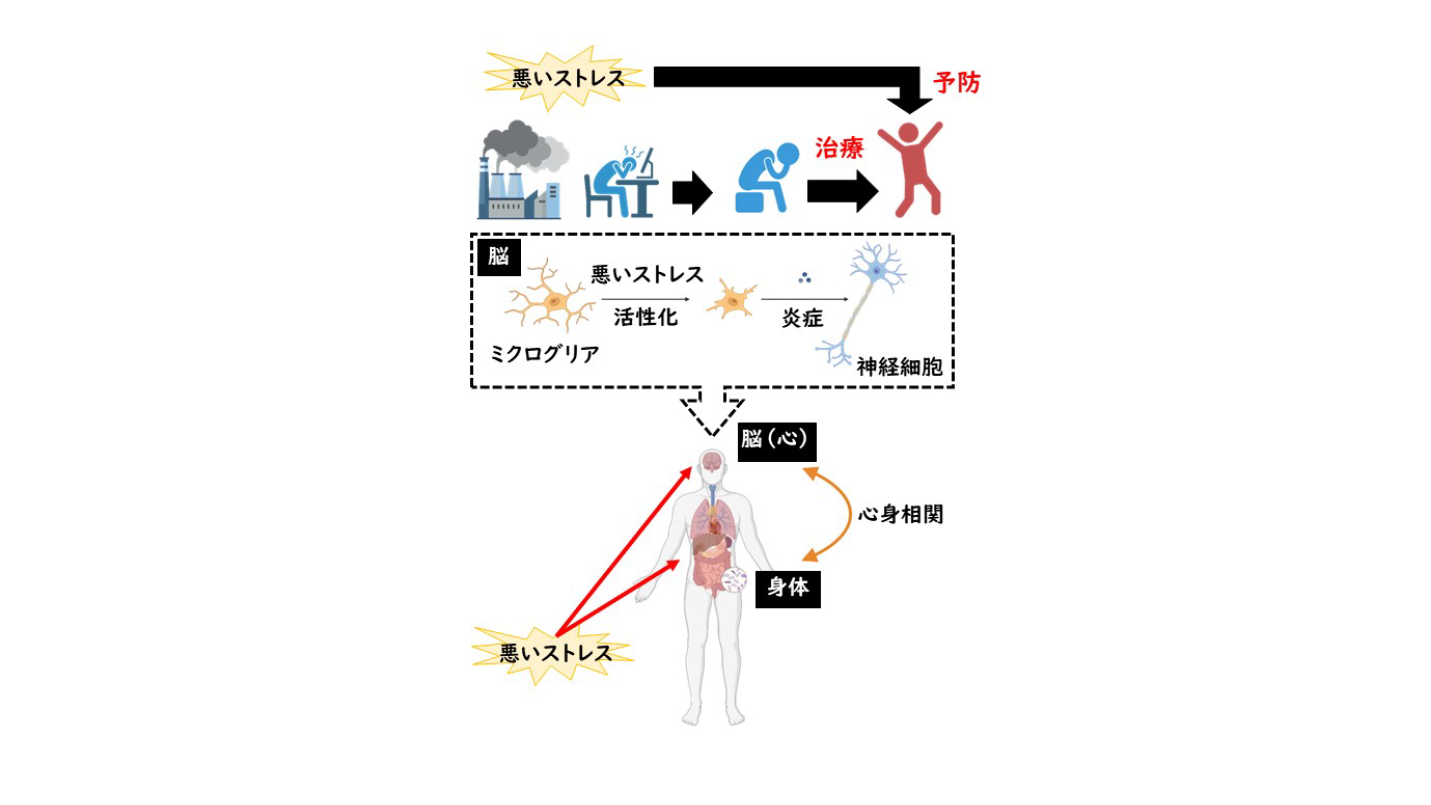
<Research Results>
Oral and poster presentations at academic conferences and symposiums
- "The role of brain inflammation in emotional alterations caused by chronic stress"
Shiho Kitaoka, Kyoto University Industrial Health and Welfare Medicine Summer Special Lecture (online) - "The role and production mechanism of bioactive lipids in emotional changes induced by social stress"
Shiho Kitaoka, BPCNPNPPP4 Joint Annual Meeting (Tokyo) - "Basic study on the effects of sleep duration and quality on energy metabolism"
Yoneichi Kiwawara, Manabu Kadotani, Akio Miyoshi, Makoto Nishiumi, Yi-Ryong Choi, Hidenori Koyama, 40th Annual Meeting of the Japanese Society for Obesity (Okinawa) - "Stress and Obesity: Considerations from the Perspective of Sleep Disorders"
Hidenori Koyama, Manabu Kadotani, 40th Annual Meeting of the Japanese Society for Obesity (Okinawa) - "Inflammation-mediated changes in iron metabolism due to chronic social stress"
Shiho Kitaoka, 33rd Gathering of Young Researchers in Neurobehavioral Pharmacology (Hyogo) - "The role of microinflammation in emotional alterations induced by chronic social stress"
Shiho Kitaoka, National Institute of Genetics Research Meeting 2023 (Shizuoka) - "The roles of blood cells in chronic stress-induced behavioral changes"
Shiho Kitaoka, 101st Annual Meeting of Physiology Society of Japan (Fukuoka)
Report
- 2023.2.2 "Hyogo Innovative Challenge" 2022 Startup Seminar to be held
- 2024.2.15 “Hyogo Innovative Challenge” 2023 research results report meeting held